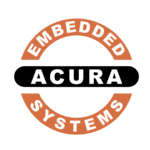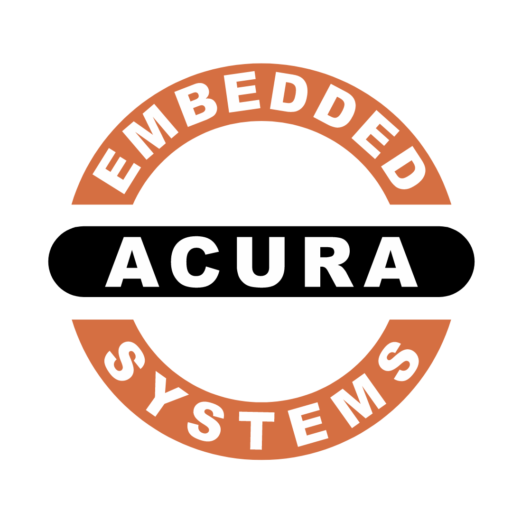WHAT IS AN INDUSTRIAL COMPUTER?
Think of an Industrial Computer (IPC: Industrial PC) as a desktop computer: they both share many technical features and functionality: kind of microprocessor and RAM, storage units, interface ports, performance, etc. However, an Industrial PC is a more robust system, more suitable for use in a workshop environment.

WHAT DISTINGUISHES A “COMMERCIAL” PC FROM AN INDUSTRIAL PC?
First of all, industrial computers are specifically designed to withstand severe workshop environments (extreme levels of temperature, dust, humidity, vibrations, power surges) for which commercial PCs are not suitable.
Before choosing a ‘PC’ for an application, you must always keep in mind the following factors:
• Temperature: Used correctly, industrial computers can operate at 45 °C and above, while commercial PCs must always work below 35 °C
• Dust: the cooling fans, when they are external to the chassis, come usually equipped with special filters to keep out dust and other factors of contaminants. On systems equipped with positive pressure air flow, it is obtained also:
• A constantly clean air flow inside the frame
• Direct cooling of magnetic drives (floppy disk, hard disk, CDROM), system components and power supplies
• Impacts / Vibrations: the discs can be mounted on anti-shock / anti-vibration devices
• Humidity: The machine tool environments (grinding, lathes, machining centers, lines transfer, etc.) are often characterized by contaminating / coolant liquids, while very often the plant itself can reach high humidity values relative, in which a commercial PC absolutely cannot resist.
• Power supply: current surges, transient phenomena and electrical noise on the power supplies are very common in the workshop environment. Computers must be equipped with clean and stabilized direct voltage in (almost) all conditions.
• EMI: earthing, and proper electrical and shielding design ensure proper insulation and compliance with electrical standards internationally recognized.
• IP / NEMA protection
• Expansion & Longevity: An Industrial PC is often more expandable (in terms of slot) compared to a normal PC, including support for proprietary applications that need to work (and be maintained) without problems for 5 – 10 years or more, well beyond the production availability of the cards or their singles
commercial components. The possibility of technological upgrade or simply the availability of spare parts make the ‘cost of ownership’ of the Much lower Industrial PC compared to an office PC, compensating
largely the largest initial investment sustained for the Industrial PC itself.
• Easier access for technical assistance (less downtime)
• Depending on the model, an Industrial PC can be panel mounted (19 “rack) or on a bench, and also on a support with an articulated arm, adapting flexibly to any physical environment.
Are you still planning to expose your office PC to the workshop environment?

WHAT IS AN INDUSTRIAL “WORK STATION”?
Usually, it is a computer with all the features of an Industrial Computer, where the complete system (i.e. Industrial PC, DAQ cards, etc.) is housed in one mechanical structure. Most of the time, the housing is a hood for bench or rack mounting.
WHAT IS A “PANEL” INDUSTRIAL PC?
It is usually a computer with all the features of an industrial computer, housed in a much smaller mechanical structure than a workstation. This usually results in fewer expansion slots (or indeed no slots at all), but its smaller dimensions and weight make it the ideal solution for panel mounting or a wall, and also for applications on articulated arm. Signal conditioning e data acquisition is often performed by external devices.

WHAT KIND OF APPLICATIONS CAN BE SUPPORTED BY A INDUSTRIAL COMPUTER?
All the typical applications of the industrial world:
• Data acquisition for Measurement, Statistical Process Control and applications of automatic machine tool control
• Controller connected to the network or stand-alone for data collection
• Management unit, motion control
• Production, cell controllers
• Other factory automation applications
ANY PC CAN BE USED FOR MEASURING AND SPC APPLICATIONS
IN A WORKSHOP ENVIRONMENT?
Theoretically yes, in practice there may be some contraindications. To use a Commercial PC or even a generic “industrialized computer” in applications of measure, we must also keep in mind many other aspects:
• Mechanical adaptation Commercial PCs and DAQ cards do not always adequately take into account
physical connections of transducers, sensors, I / O signals for PLC / CNC to the world external’. All E9066 industrial computers solve the connection problem of transducers and cables, connections, cabinets and rack mounting, etc.
• Suitability for use in the workshop
• Environmental protection level (IP / NEMA)
• Heat dissipation
• Electric Office computers, regardless of their marking (CE, FCC, UL / CSA etc.), however, may not be suitable for metrological applications.

